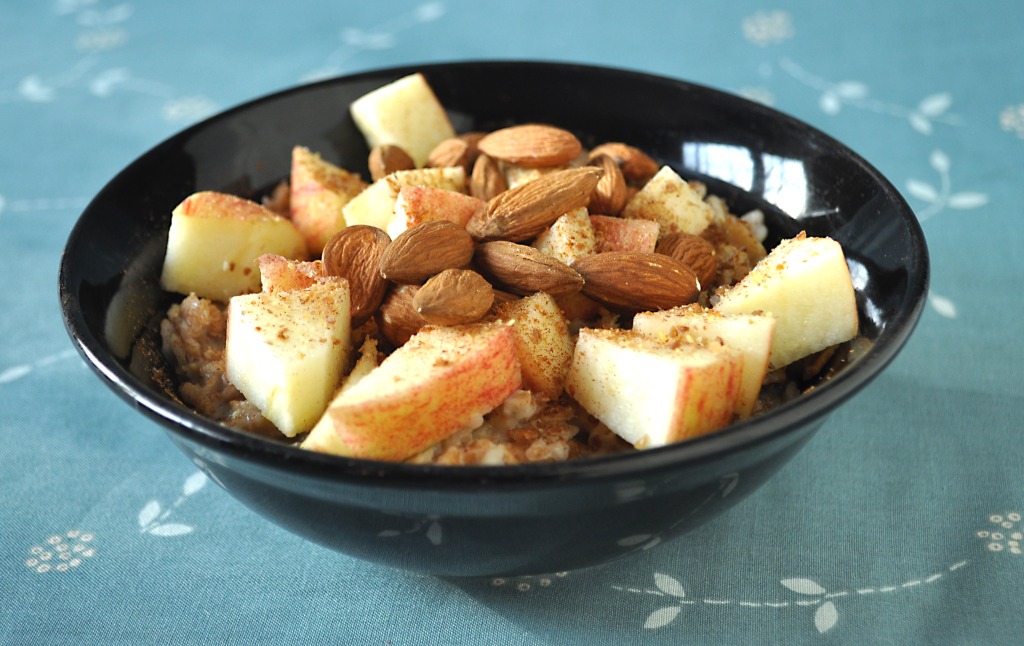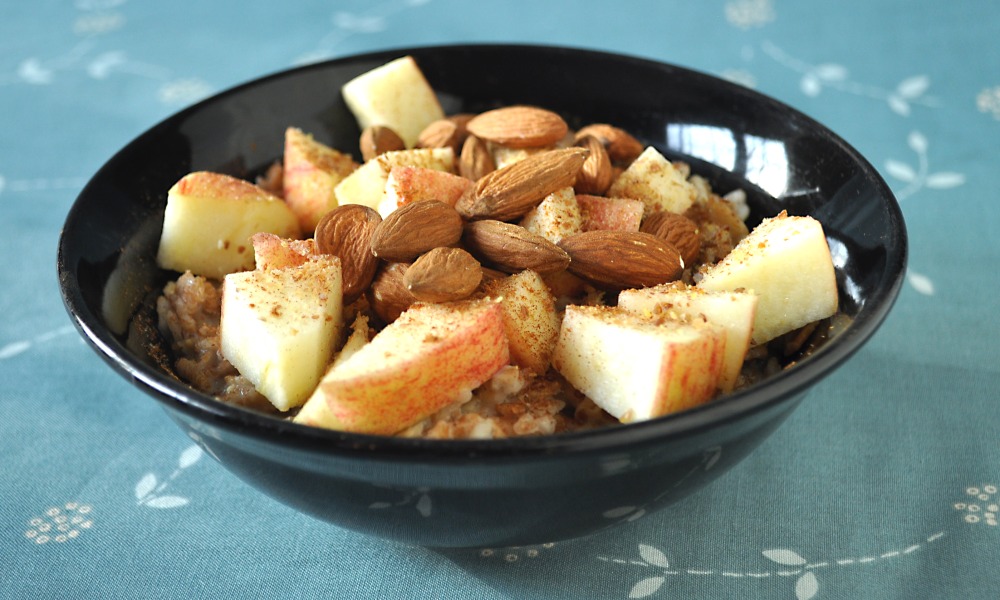Coincidentally, at the same time as being encouraged by a friend to try the NEW Atkins diet (which isn’t as dangerous for your heart as the old version) – which encourages you to have balanced amounts of healthy fats and protein, cut out sugar, and minimise the number of carbs you can eat each day – I also came across the DVCC’s latest article on how important a protein filled breakfast is for weight loss. Excellent timing!
I’m not advocating the Atkins diet based on any nutritional education, as neither my friend nor I have any qualifications to do so. However, my friend is a really lovely size 10, and I have managed to lose 11 Ibs over the first 3 weeks on the Atkins diet. If the following information on protein & fat being better for your diet than cereals and toast inspires you to change though, I would recommend looking in to the Atkins meal plans and carbohydrate counter tool – as you’d be surprised to learn which fruit, veg and dairy actually contain overly high levels of sugar and carbohydrate.
The advice from DVCC and the meal plans on New Atkins do seem to sing from the same hymn sheet. I thought I’d investigate further into what the deal is – as it seems very bizarre to be ‘dieting’ and still dining in luxury with mushrooms and bacon, or salmon and eggs for breakfast every day, and to be ‘forbidden’ from eating cereal – which until now I have eaten religiously in the pursuit of a flatter stomach.
First thing’s First – why are Cereals and Other Typical Breakfast Foods so Bad?
Well, obviously there’s sugar. For children’s cereal there’s added sugar, but even for healthy adult options such as fruit & fibre, which was a staple of mine for years, there’s more sugar in a serving (from the dried fruit) than 1/3 of your daily recommended intake for sugar. Current recommendations are that people should only consume 50g a day, (muesli/fruit & fibre etc. often have between 15g and 20g per serving), but recommendations are for this value to be halved due to rising obesity levels! Of course, if you’re filling up on your recommended sugar intake on what you deem to be ‘healthy’ breakfasts, and then eat fruit for snacks, and sweet potato or other veg for dinner, you will be way over your daily recommended intake before you’ve even treated yourself to a low fat (read higher sugar) vanilla latte or a chocolate bar – which to be honest, most of us do even when we’re being mostly ‘good’. Sugar is everywhere – and the best thing to do is to avoid added sugar at all costs, to avoid ‘low fat’ products such as yogurts, milk and butters (opt for the pure full fat options, just watch the quantity used)

Other common misconceptions of ‘healthy breakfasts’ range from fruit smoothies (way too high in sugar), wholemeal or white toast/bread, which itself contains up to 3g sugar (before you add honey, jam, marmalade etc.), low fat yogurts with fruit, or even pure fruit juices.
Other than navigating through the maze of breakfast options to make sure you AVOID sugar, you also need to select a meal which will provide you with the right nutrients for healthy body, mind, and weight loss (if you’re trying to lose weight). If you try to weigh up the recommended calorie allowance, sugar intake, fat intake, and remain under these limits, whilst also trying to ensure you get enough portions of fruit, veg, protein and other essential nutrients to ensure your body has everything it needs, it can become a really daunting task. It can be especially difficult when it comes to doing a weekly shop, planning what to eat for dinner in relation to what you’ve already consumed so far in the day, and most of all when you’re having to find meals in a hurry or out and about!
Benefits of Protein, Good Fats, and Fibre:
So, other than looking for breakfast foods which don’t have high sugar/carb content in, you also want to seek out food which has protein, good fats, and fibre. The choice of what you eat for breakfast sets up the way your brain will function for the day – so, that’s quite important! You’ve probably heard it said that you need energy, protein, nutrients for your brain to function to its best, and it’s entirely true. As if that’s not enough reason to go protein-focused for breakfast, how about the fact that protein fills you up in a better way than cereals? Cereal doesn’t give you the right energy for the day, and doesn’t leave you feeling as full for as long as protein and good fats do – leading to hunger & snacking.
From first-hand experience over the past few weeks on New Atkins, I can vouch for the fact that you can feel full from bacon, egg, and spinach, or mushrooms, eggs and asparagus can really fill you up. I normally want to snack by 11ish, and I honestly don’t feel hungry. The other great things about New Atkins is that you can still have treats. Whether you buy their branded snacks or use them for inspiration, there are chocolate treats or coconut-y treats which because some of the more sugary content has been exchanged for purer ingredients, and they have fibre and fat instead, they are fine for the diet! So you don’t have to be able to resist temptation nor go hungry – 2 things I’ve always suffered from in previous diets.
Furthermore, protein is good for healthy skin, nails, muscles, cartilage, and blood, amongst other things. It helps build and repair tissue too, as well as being a slower release form of energy.
Eggs – not true that they’re bad for cholesterol as previously thought, ok to eat more often. They also are a great source of choline which is needed to keep your brain and nervous system healthy. They also contain mostly good fats, so are a great staple to cover both bases! Salmon or white fish are also excellent sources of protein, and similarly contain a variety of the good fats and nutrients. You should aim for 2 servings of salmon/sardines/tuna/mackerel a week!
Healthy fats are monounsaturated, or polyunsaturated, and bad fats are trans and saturated. Healthy fats come from things like avocados, almonds, cashews, coconuts and pecans, and these actually help to improve cholesterol! Olive oil is another great source of healthy fats, don’t overdo it as with any of the fats, but using it for cooking or dressing salads is better for you than using low fat cooking oils or salad dressings (which will contain sugar and carbs!).
Fibre is also vital for a healthy body, and helps to improve digestion, help with weight loss, and also help prevent heart disease, diabetes, and even some cancers. You should aim for 18g a day. Good sources of fibre are rye, fruit, root vegetables, and nuts and seeds.
The ideal diet will include a varied balance of these fibre, proteins and good fats, whilst reducing the amount of sugar, carbohydrates and bad fats. Check labels, use google, and start to be aware of how much sugar is in ordinary products like milk, ham and bread. You’ll be amazed at what you’re eating, and start to work out a new healthier balanced diet.

